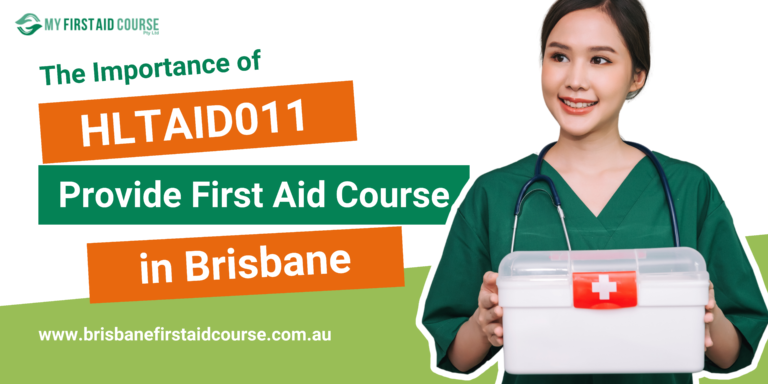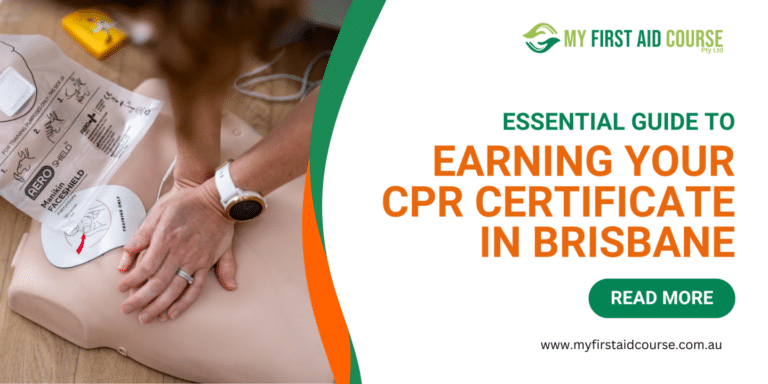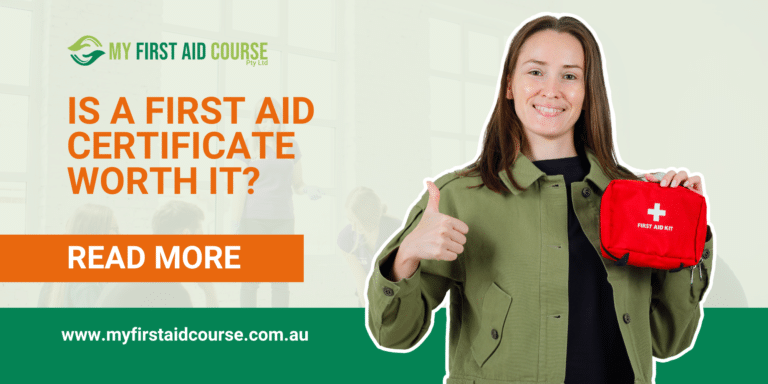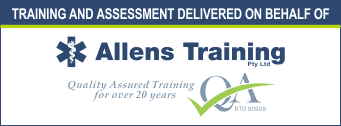Discover the essential life-saving skills you can acquire through the top CPR courses Brisbane offers.
With our active outdoor lifestyle and love for the beach, knowing how to perform cardiopulmonary resuscitation (CPR) can make all the difference during critical moments.
By exploring this article, you’ll get insights into quality CPR training that suits your specific needs, whether primary HLTAID009 Provide Cardiopulmonary Resuscitation or advanced HLTAID015 Provide Advanced Resuscitation and Oxygen Therapy.
You’ll also learn about obtaining certification and keeping it current through recertification—crucial for ensuring your skills are always up to scratch.
We’re diving into practical tips on choosing the right course for you by comparing costs, understanding value, and considering logistics like location and scheduling. Let’s start preparing you to be ready when it counts.
Ready to become a life-saver? Call us at 07 3872 6777 or secure your spot online today!
Table Of Contents:
- Understanding CPR and Its Importance in Brisbane
- Critical Components of a Quality CPR Course
- Tailoring Your CPR Training to Your Needs
- The Process of Certification and Recertification
- Comparing Costs and Value of CPR Courses in Brisbane
- Practical Considerations When Choosing a CPR Course
- FAQs about CPR Courses Brisbane
- Equipped to Save Lives with Responsibility and Confidence
Understanding CPR and Its Importance in Brisbane
CPR, which stands for cardiopulmonary resuscitation, is a crucial life-saving skill, especially for Brisbane residents.
Given our passion for outdoor activities and proximity to bushland and beaches, knowing how to perform CPR correctly can be the decisive factor in saving someone’s life.
The Role of CPR in Emergency Situations
Brisbane locals enjoy an active lifestyle, like swimming and hiking outdoors.
However, with adventure also comes the potential for risks. Sudden cardiac arrests don’t provide any advance notice; they occur suddenly and without warning.
This is where CPR is essential because it sustains blood circulation when the heart cannot perform its function.
Picture this: You’re enjoying your time with friends when suddenly, someone collapses—no pulse, not breathing. Your actions within the next few minutes are crucial because every second counts here more than anywhere else.
CPR Success Rates And The Chain Of Survival
A study has shown that immediate CPR can double or even triple survival rates after out-of-hospital cardiac arrest. Resuscitation guidelines from Australia’s leading experts outline four key links forming what’s known as ‘the chain of survival’:
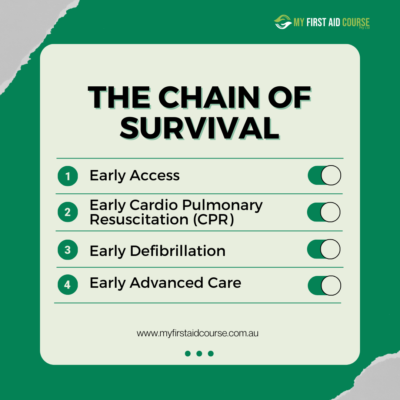
Early Cardio Pulmonary Resuscitation (CPR): Provide cardiopulmonary resuscitation (CPR) immediately after recognising cardiac arrest, which involves chest compressions and rescue breaths to maintain oxygen-rich blood flow. Each minute without CPR reduces survival chances by about 10%.
Early Defibrillation: Use an automated external defibrillator (AED) to control electrical shock and restore normal heart rhythm in specific cardiac arrest cases. Widespread AED access boosts survival rates.
Early Advanced Care: Professional responders, like paramedics, deliver advanced life support, including airway management, medication administration, CPR, defibrillation, and addressing the root cause of cardiac arrest.
The Local Perspective on Learning Quality CPR Training In Brisbane
In Brisbane, we face unique environmental challenges, including extreme heat during the summer months, which often leads to dehydration for those who are not careful.
This adds a layer to why having these life-saving skills is not just a smart choice but a necessary one.
Getting trained by nationally recognised organisations ensures you’ll have peace of mind, knowing that you can help effectively if the need arises.
These courses are specifically designed to provide hands-on experience.
So, after your practical assessment with manikins, your confidence levels boost, and your knowledge of emergency response protocols tailored to Queensland’s specific climate conditions will also expand.
Critical Components of a Quality CPR Course
A high-quality CPR course isn’t just about checking the box; it’s an empowering journey that equips you with the confidence to potentially save lives.
But what exactly sets apart a high-quality program from the rest?
 Curriculum Standards and Accreditation
Curriculum Standards and Accreditation
The foundation of any reputable CPR course is its adherence to strict curricular standards set by nationally recognised bodies.
In Brisbane, these guidelines ensure your training aligns with Australian Resuscitation Council recommendations and international best practices.
This alignment guarantees that your learning is relevant and current with current lifesaving techniques.
An accredited course also reassures employers that their staff is trained according to nationally recognised standards in emergency care.
Certification Validity
Your newly acquired certificate should represent more than just participation; it should also signify competence.
A nationally recognised certification means that you have been assessed properly on your ability to provide CPR under pressure, conforming to the high standards we discussed earlier.
Ensure this validation comes from a nationally recognised training provider as well because there’s no room for doubt regarding your capabilities in times of crisis.
Practical Assessment
Practical assessment is essential because you wouldn’t want someone reading off notes if your heart stopped beating.
A reputable course will offer abundant opportunities for hands-on practice, allowing students to become proficient in techniques such as chest compressions and rescue breaths.
This practical assessment is vital to ensure that individuals are well-prepared for real-life situations where every second is crucial.
We understand that knowledge retention significantly improves when theory is put into action. That’s why our courses at My First Aid Course Brisbane strongly emphasize practical, hands-on learning experiences.
Sometimes, this involves getting your hands dirty, but it’s all about practical and memorable learning.
Instructor Qualifications
The key to a successful CPR course is having a skilled instructor. A great instructor teaches and inspires confidence through their experience and stories from real-life emergencies.
So, when choosing a CPR class, look for one that combines informative lessons with passionate and experienced instructors. This will help you become a confident lifesaver.
Tailoring Your CPR Training to Your Needs
Every heartbeat counts, and CPR training in Brisbane should be tailored to your needs.
Whether you’re a surf lifesaver watching over sunny beaches or an office worker prepared to respond to workplace emergencies, your CPR course should be a perfect fit, designed to be practical and relevant to your unique situation.
Profession-Specific Requirements
If you work in an environment where risk is part of the job, such as construction sites or industrial environments, an advanced resuscitation course (HLTAID015 Provide Advanced Resuscitation and Oxygen Therapy) might be your ally.
You’ll learn not just how to keep the blood pumping but also how to manage injuries until paramedics arrive on the scene.
On the other hand, educators and childcare workers often choose courses focusing on pediatric emergencies because caring for little ones demands a gentle touch and specific skills.
The Childcare First Aid Course (HLTAID012 Provide First Aid in an Education and Care Setting) equips educators and support staff in education and care settings with skills to respond to first aid emergencies for infants, children, and adults, including asthma and anaphylaxis.
For those delving into more technical fields, healthcare professionals may require Advanced First Aid Course (HLTAID014 Provide Advanced First Aid).
Lifestyle Choices Informing Course Selection
Your hobbies aren’t just leisure activities; they can help determine the type of CPR training that suits you best.
If your weekends are spent hiking through Springbrook National Park or kayaking down the Brisbane River, remote first aid training might be the right choice for you.
A Remote First Aid Course Brisbane (HLTAID013 Provide first aid in remote or isolated site) provides skills for remote first aid and life support in isolated situations, suitable for those who may need to respond without immediate medical help.
In remote outdoor settings where help can be hours away, these first aid courses prepare you for scenarios far from hospital lights, where improvisation becomes as crucial as precision.
On the other hand, the HLTAID011 Provide First Aid course covers medical emergencies, which is a practical choice if you’re a city dweller who wants to be prepared for urban emergencies.
The Process of Certification and Recertification
Learning CPR is a skill that, once learned, is not easily forgotten; however, staying up-to-date with the latest techniques keeps your skills sharp.
When looking for CPR courses in Brisbane, it’s essential to understand that certification isn’t just a one-time event—it’s an ongoing commitment.
Step-by-Step Guide to Getting Certified
To start your journey, find a reputable training provider offering comprehensive CPR courses such as My First Aid Course. Sign up for the course that suits your schedule and needs best.
The CPR Course Brisbane (HLTAID009 Provide Cardiopulmonary Resuscitation) builds confidence and skills in providing first aid, including CPR and life support. Expect written and practical assessments and online pre-course learning on life-saving techniques.
You’ll get a digital certificate within 24 hours of completing the course assessments. Certifications are valid 12 months from the issue date because first aid practices evolve as new medical research emerges.
Navigating Recertification Smoothly
Time can slip by quickly, and it might surprise you that a year has passed since your last CPR class.
To keep those life-saving skills sharp, it’s essential to mark your calendar or set reminders because annual recertification is necessary.
Recertification typically involves courses focusing on updated procedures since your initial training.
Finding Balance Between Cost & Quality During Renewal
While we all appreciate value for money, it’s crucial not to let cost be the sole factor in deciding where to recertify.
Instead, weigh the value of each renewal offer. Does it include access to digital resources? Are there flexible scheduling options available?
These considerations ensure that recertification isn’t just a routine but a way to effectively maintain vital competencies without straining your budget.
Regular retraining strengthens your skills and ensures your readiness to respond during emergencies remains top-notch.
Comparing Costs and Value of CPR Courses in Brisbane
The cost is undoubtedly an essential factor when considering your options for CPR courses in Brisbane.
However, it’s essential to remember that it’s not solely about finding the cheapest option; it’s about getting the best value for your investment.
CPR training could be a life-saving skill one day, so it’s crucial to consider what each course offers before spending your hard-earned money.
Understanding Course Fees
The price tag on CPR courses can vary widely based on factors such as accreditation status, trainer expertise, and included resources.
In Brisbane, you’ll find a range of CPR courses, from basic to comprehensive packages with first aid kits or additional online materials.
In My First Aid Course Brisbane, basic CPR courses typically start at around $58, while advanced CPR course cost $190.
The cost of CPR certification often reflects the extent of the training.
It depends on whether you’re seeking a quick refresher or full-scale training that includes comprehensive emergency response drills.
Gauging Value Beyond Dollars
A lower cost doesn’t always mean lesser value—sometimes, it reflects streamlined processes that maintain high education standards.
For instance, here at My First Aid Course Brisbane, we have an engaging approach and experienced instructors who ensure quality without unnecessary extras inflating the price.
To understand what you’re paying for, check if the provider follows national regulations set by the Australian Skills Quality Authority (ASQA).
Also, consider whether they offer after-course support because learning doesn’t stop once class ends—it’s ongoing.
Inclusions That Matter
It’s crucial to examine what’s included in your course fee. Does it come with digital manuals? Are there post-training online assessments to help you maintain your skills?
Sometimes, the added perks can justify higher prices because they extend your learning beyond the classroom and offer convenience that saves you time in the long run, such as the ability to renew certifications more quickly through exclusive alumni services.
Lastly, don’t forget about recertification. Regular updates to your qualifications are essential to keep your skills fresh, but they also come with a cost.
Make sure you choose a straightforward recertification option without hidden fees that could catch you off guard later.
Practical Considerations When Choosing a CPR Course
When you’re eager to learn CPR and how to save lives, it’s not just about the life-saving techniques; the practical aspects matter just as much.
You want a course that suits your lifestyle seamlessly. So, let’s delve into what you should consider when choosing the right course.
Location: Finding Your CPR Training Ground
Selecting the right location for your training is crucial. You’ll want a convenient spot that’s easy to reach, as nobody wants to endure the stress of navigating through Brisbane’s traffic only to arrive too tired to focus on learning.
Look for My First Aid Course Brisbane locations, which are held at venues throughout the city.
Scheduling: Fitting Life-Saving Skills into Your Timetable
We all lead busy lives, and taking on another commitment can be as challenging.
Courses are designed to accommodate various times and days, including weekends. This flexibility ensures that everyone can learn how to save a life.
The Length of The Course: Time Well Spent or Dragged Out?
Courses are readily available and designed to be efficient yet packed with essential skills. At My First Aid Course Brisbane, a single day might be all you need.
Having a 2.25 hour practical session and an online pre-course video learning (3 to 5 hrs self-paced learning), you can expect to receive a nationally recognised digital certificate usually within 24 hours of completing the course.
It ultimately comes down to personal preference. My First Aid Course offers various options tailored to your needs.
Consider these practical factors when selecting your next – or first – CPR course.
While they might seem minor compared to the life-saving skills you’ll acquire, they can make all the difference in your journey to becoming proficient in CPR.
FAQs about CPR Courses Brisbane
Is online CPR certification valid in Australia?
Many employers and organisations in Australia accept online CPR certifications if they meet Australian Resuscitation Council guidelines.
How do I get my first aid and CPR certificate in Australia?
You need to complete a course from an accredited provider. They’ll cover the essentials and then assess you before issuing your cert.
Does HLTAID011 include CPR?
Absolutely. HLTAID011 covers basic emergency life support, including CPR (HLTAID009 Provide Cardiopulmonary Resuscitation).
Is HLTAID001 the same as HLTAID009?
Nope. HLTAID009 has replaced HLTAID001, and it is now the new standard for cardiopulmonary resuscitation.
Equipped to Save Lives with Responsibility and Confidence
Mastering CPR is a game-changer. With the suitable CPR courses Brisbane offers, you’re now equipped to save lives. This knowledge comes with responsibility and confidence.
Remember, it’s all about location and timing. Choose a course that fits your schedule and is easy to get to.
Weigh up costs against benefits. It’s not just what you pay; it’s what value the training brings into your life.
Certification is vital, but so is keeping it fresh in mind through recertification. Make sure those skills stay sharp!
Learn well, choose wisely, and spend smartly. You’re ready for any emergency now.
My First Aid Course Brisbane is more than a certification — it’s your opportunity to make a difference and stand up during critical moments.
Don’t delay this vital training. Book your course now at 07 3872 6777 or visit our website to learn more!

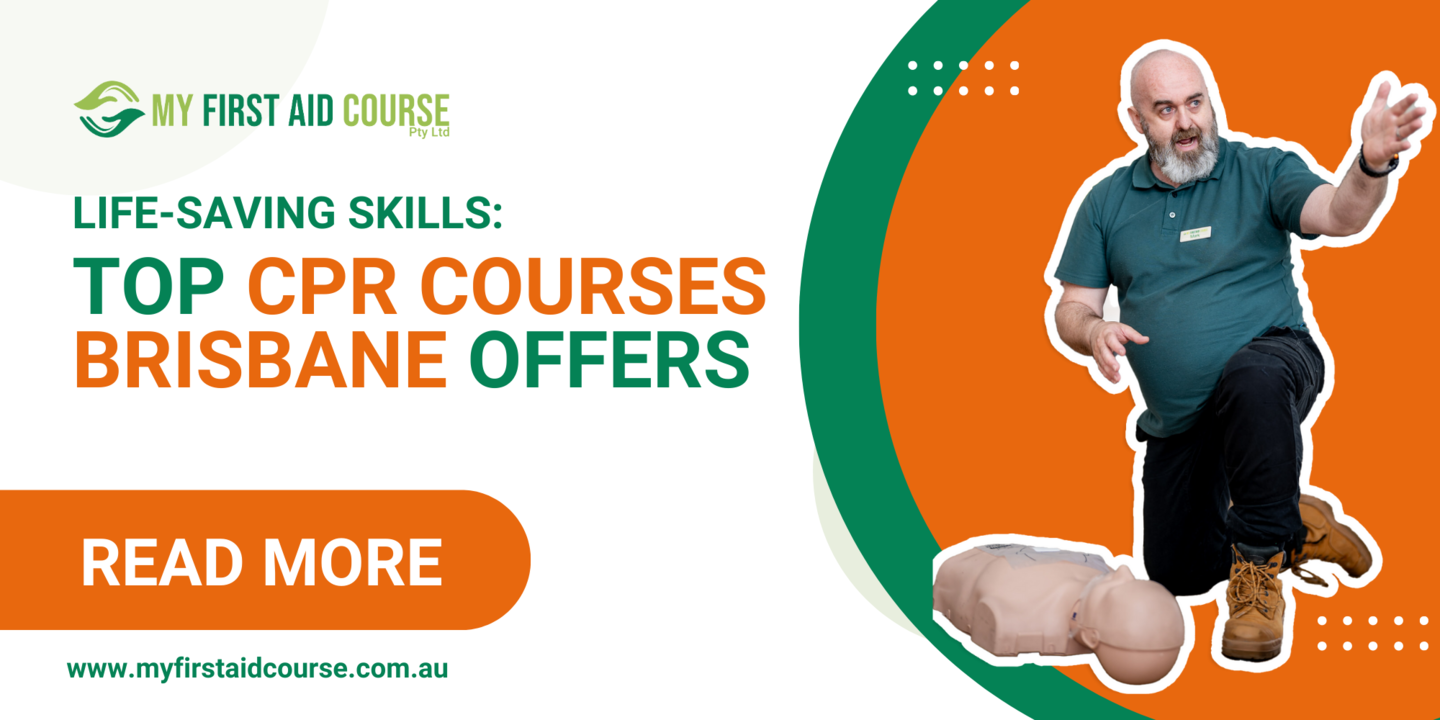
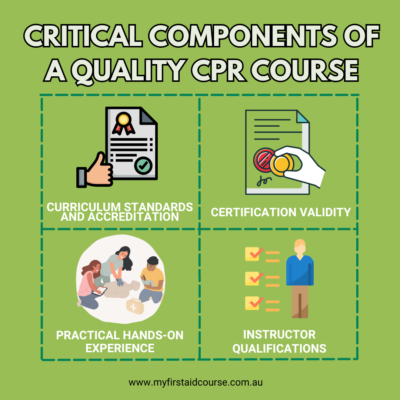 Curriculum Standards and Accreditation
Curriculum Standards and Accreditation.png)

